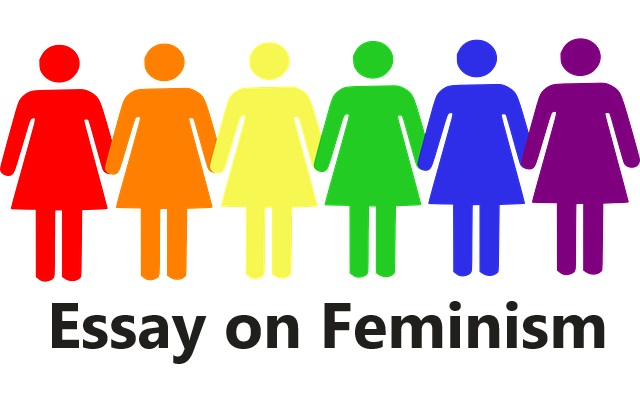Feminism, a term that has sparked countless debates, challenges societal norms, and advocates for the rights and equality of women. In a world where gender roles have traditionally constrained and defined individuals, feminism emerges as a powerful force driving change. In this essay, we explore the meaning, importance, impact, and enduring relevance of feminism in challenging and reshaping societal norms.
Essay on Feminism
Feminism, a term often met with varied reactions, encapsulates a powerful movement advocating for the rights, opportunities, and equality of women. At its essence, feminism seeks to dismantle the historical structures and societal norms that have perpetuated gender-based inequalities. Lets explore the meaning, importance, impact, and ongoing relevance of feminism as a force for positive change.
Meaning of Feminism
At its core, feminism is not a call for female supremacy but a powerful advocacy for gender equality. Emerging from the Latin word "femina," meaning woman, feminism seeks to dismantle deeply entrenched structures and ideologies that perpetuate gender-based discrimination. It encompasses a diverse range of perspectives and approaches, united by the common goal of addressing historical imbalances and fostering an equitable society.
Importance of Feminism
Feminism holds paramount importance in its commitment to dismantling patriarchal structures and challenging societal norms that have historically marginalized women. By advocating for equal opportunities and dismantling gender-based discrimination, feminism contributes to the creation of a world where individuals are judged based on merit rather than gender. Its importance lies in fostering diversity, inclusivity, and recognizing the inherent worth of every individual.
Also Read: Trending Essay Topics
Impact of Feminism
Legal Reforms: The impact of feminism is evident in legal reforms that have reshaped the landscape of women's rights. The First Wave, focusing on women's suffrage, laid the groundwork for subsequent waves to address broader issues such as reproductive rights and workplace equality. These legal advancements mark milestones in the ongoing struggle for gender equality.
Cultural Shifts: The Second Wave, spanning the 1960s and 1970s, marked a paradigm shift by challenging cultural norms and restrictive gender roles. Advocating for women's liberation, this wave sought to reshape societal perceptions of women's capabilities and roles. Feminism's impact on cultural attitudes has continued through subsequent waves, challenging stereotypes and fostering diverse representations of women in media.
Intersectionality: The Third Wave, emerging in the 1990s, introduced the concept of intersectionality. Acknowledging that women's experiences are shaped by intersecting factors such as race, class, and sexual orientation, this wave aimed to create a more inclusive movement that addressed the diverse challenges faced by women. Intersectionality has become a central aspect of contemporary feminist discourse.
Digital Activism: The Fourth Wave, unfolding in the digital age, harnesses technology to amplify voices and address prevalent issues like sexual harassment and assault. The #MeToo movement, born out of this wave, exemplifies feminism's impact in providing a platform for survivors to share their stories, raising awareness, and demanding accountability.
Also Read: 50 Essays for All Exams Get Here
Core Principles of Feminism
Gender Equality: At the heart of feminism lies the principle of gender equality. Advocating for equal pay, dismantling discriminatory practices in the workplace, and challenging societal expectations are central tenets. Feminism aims to create a world where individuals are afforded opportunities based on their abilities, irrespective of gender.
Reproductive Rights: An integral component of feminist advocacy is the fight for reproductive rights. This includes a woman's right to make decisions about her body, access to contraception, and safe and legal abortion. Ensuring control over reproductive choices is vital for achieving true gender equality.
Challenges and Ongoing Relevance of Feminism
Despite progress, challenges persist on the feminist journey. Stereotypes and misconceptions often cloud the true objectives of feminism, leading to resistance and misunderstanding. Global disparities persist, requiring nuanced solutions to address unique cultural and systemic challenges faced by women worldwide. The ongoing relevance of feminism remains critical for building a more just and equitable future for all.
Conclusion
In conclusion, feminism emerges as a dynamic force with a profound impact on legal, cultural, and societal landscapes. Its meaning transcends the mere advocacy for women's rights; it encompasses a commitment to equality, diversity, and justice. The ongoing importance and impact of feminism underscore its role in reshaping societal norms and creating a more equitable future for all individuals, regardless of gender.
Hope you liked this essay on feminism and it helped you preparing your exam. In addition to this essay on feminism you can read other important essays from here.
Also Read:
- Download PDF Essay Book for All Exams
- Essay on One Nation One Election
- Essay on Vision India 2047
- Essay on Electric Vehicle
- Essay on Social Media Addiction
Tags: Essay on Feminism in English, Essay on Feminism, Feminism, Feminism Essay, Meaning of Feminism, Importance of Feminism, Impact of Feminism























0 Comments